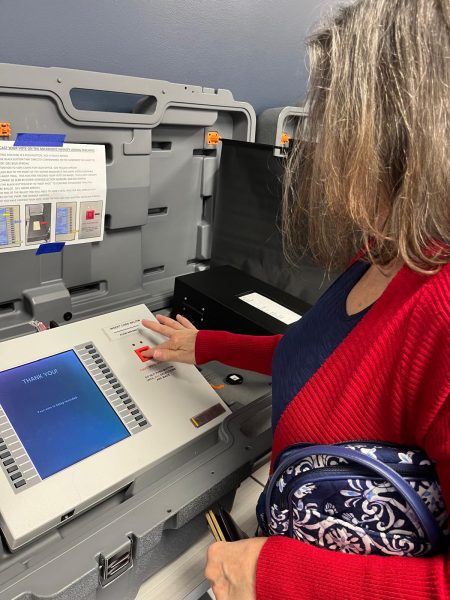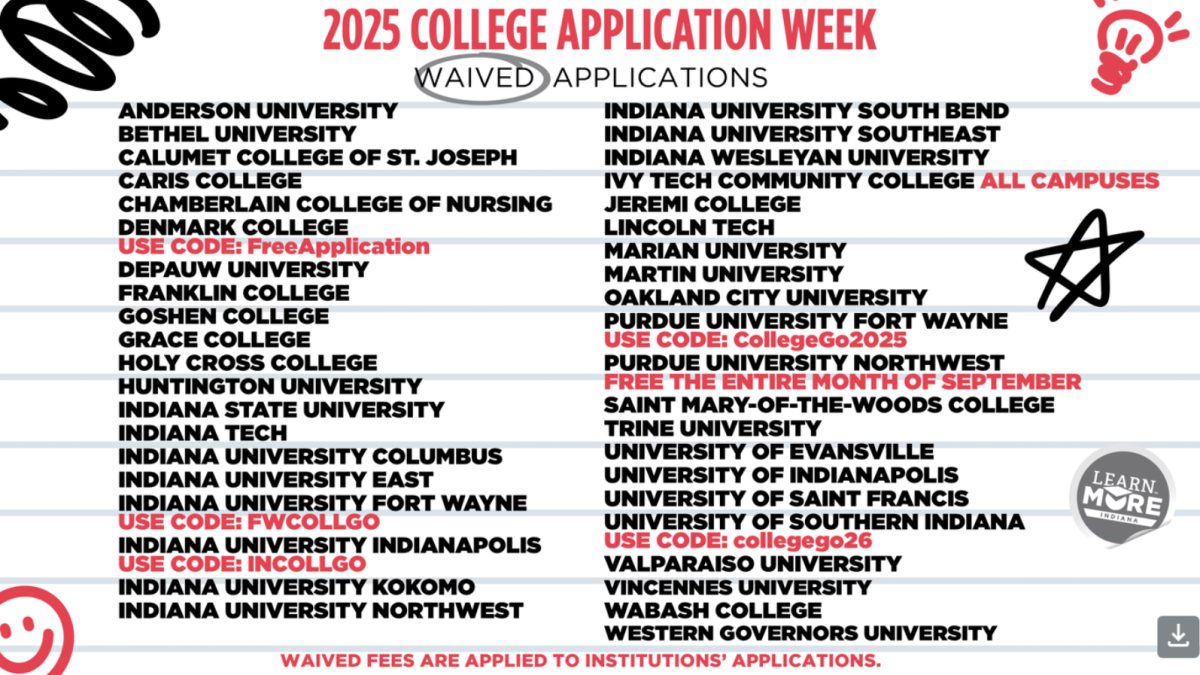Serving as her translator, I took my Brazilian grandmother to go vote for the first time as a U.S. citizen. She was dressed head-to-toe in red and blue and topped the look off with bold red lipstick, her wispy white hairs like stars upon her head.
When we arrived at the voting location, my 72 year old grandmother clutched her purse close to her chest and ran as fast as she could to the entrance, glancing behind at me and laughing mischievously.
Her pride and fearlessness has never been diminished by her lack of speaking English, and it certainly wasn’t when we got to the polls. Even though she might’ve inadvertently violated certain poll etiquettes through her grand display of excitement, she nevertheless earned a round of applause from the poll workers, bonded at that moment with fellow US citizens not by the language they spoke, but the passion and love they harbored for their country.
As we exited the building, tears surfaced in her eyes, the eyes of a woman who scarcely cries, calloused by past trauma, the wrinkles on her face vestiges of painful memories.
Even though her English vocabulary is primarily limited to the words “thank you” and “please,” the embrace she gave me communicated more patriotism and love for America than any other native-born American citizen I have ever met.
Her excitement was not only her own, but also that of her family in Brazil living vicariously through her, that of thousands of the Brazilians anxiously waiting for the results of the election, patiently awaiting an end to the corruption and to their increasingly precarious state of democracy. This election season is momentous, not only for citizens of the United States, but across the globe.

“Here in the United States there is not a problem because even though you vote electronically, there is a confirmation of your vote in print,” my grandma Maria Lucia Godoy said. “This is something that is important and that the people of Brazil are asking that Americans help to implement a voting system in Brazil like that of the U.S. In Brazil, corruption and fraud exist but you don’t have a way to prove the lies because you don’t have that paper.”
The political unrest and corruption that is happening in Brazil today isn’t new. In fact, for over two decades, Brazil was under a military dictatorship after a coup on March 31, 1964 removed President João Goulart from power. Despite the censorship, the arrests, and the lack of freedoms under the military dictatorship, many of the average Brazilian citizens, like my grandma and her family, were not affected. The Workers’ Party started the pro-communist political movement that eventually overthrew the anti-communist military dictatorship. Despite a complete shift in control of power in the Brazilian government, many things have stayed the same since the military dictatorship, and arguably have gotten worse.
“Because of the dishonesty of the Brazilian politicians, and a lot of corruption, things just kept getting worse and worse,” Godoy said. “[The Workers’ Party] made the corruption that already existed a lot worse. This party is completely communist and they want to implement communism in Brazil. By the law, Brazil is a democracy; however, that law is not being fulfilled.”
Corruption is a problem long rooted in Brazilian politics, a problem which pollutes the police force, the justice system, elections for political offices, and much more.
“It’s not the people of Brazil,” Godoy said. “It’s this corrupt government that I, particularly, and many people in Brazil don’t believe was actually elected. The people believe that this government has caused corruption in the elections. They don’t believe that it was a fair election.”
Brazil is currently facing threats to their freedom of speech and freedom of expression, a trend that has only amplified over the years.
“They want to ban many types of communication such as the internet, YouTube, WhatsApp, so that the people don’t have a voice,” Godoy said. “They want to silence the people. People needto have a voice. People have the right to speak and not be arrested.”
Brazil’s Supreme Court banned “X” on August 30 of this year. The ban was eventually lifted after about a month after the company was forced to pay a $5.1 million fine and to block accounts that were accused of breaking the law. Even though the ban was short lived, it might be a taste of what’s to come in Brazil’s future if something doesn’t change.
This government is completely against the United States,” Godoy said. “Everything that I am completely against, everything my kids are against and my grandkids are against, is this current Brazilian government.”
The largest group of voters in the US has consistently been senior citizens, and young adults voters have consistently been the smallest. This election, Gen Z voters have the ability to make a huge impact on the election results, and it is more important now than ever to represent our generation going forward into the future because it not only affects us directly, but those around the world. The same patriotism I see in my grandma, an immigrant who barely speaks the language yet has an undying love for the freedoms granted by the United States, needs to be reflected in Gen Z.
“The American Dream” isn’t dead. The only people who claim this to be true are blinded by the privilege of democracy, of free speech, of basic human liberties. The American Dream is kept alive by people like my grandma, and needs to be kept alive for generations to come.











Eli McFarland • Nov 5, 2024 at 8:02 pm
This made my day, Julia, getting to see the beautiful spirit of your grandma! Her excitement to participate and perform her duty in voting this presidential election is amazing and inspiring!